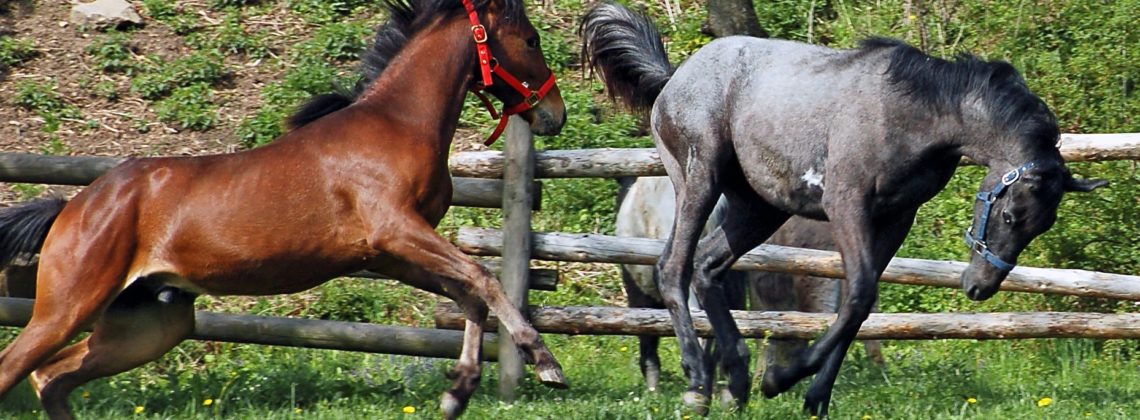Horse Behaviour & Safety – Fall ’21
Welcome to Equine Guelph’s Horse Behaviour and Safety 2 week online course.
In this course you will be given the tools to take action to create a safe environment for you and your horse by;
- Gaining an introductory understanding of horse behaviour
- Learning smart, practical horse handling skills
- Reducing physical risks on your horse’s farm
Information presented is applicable to all sectors of the horse industry. Increasing knowledge of best safety practices stands to benefit the horse industry by reducing the risk of injuries. You will also learn to identify safety and fire risks around the farm to allow a safer environment for you and your horse.
This course may be of interest for:
- All coaches, stable managers and instructors to learn best practices for safety
- All youth leaders in order to consistently promote safety standards for your students
- Association and policy development leaders to ensure high safety standards are being upheld in your programs.
- New horse owners, or those who are thinking of getting a horse and want to learn more
In this course you will learn to:
- Understand basic horse behaviour and how to speak their language
- Learn smart, practical horse handling skills
- Reduce physical risks on your horse’s farm
Please Note: Even people who are experienced with horses can be injured by them. In doing activities that require close contact with horses we suggest you use great care and if you are unfamiliar with horses we recommend you work closely with someone who is an experienced and safe horse handler.
Course Topics:
- Horse Behaviour – Wild vs Stabled
- How Horses See and Hear
- Herd Behaviour – How Horses Interact with Each Other
- Horse Handling – Basic Safety Around Horses
- Rider/Helmet Safety
- Safe Trailering – Basics
- Fire Safety
- Safety around the Barn and Paddocks
- Returning from an Injury
Assignments and Assessments
You are required to complete the assignments to receive your certificate of completion but assignments are not graded. Completion of assignments is recommended for personal achievement
Part A: Horse Handling Factsheet The first part of your assignment is to create a horse handling factsheet that could be posted in a barn. Please pick one skill and describe how to do it safely. Please limit it to one letter sized page (single sided). The font size can be large and we recommend using a numbered or bullet point list. You want it to be easy for people to read if posted on a bulletin board in a stable. Suggestions for topics (but please feel free to pick one that isn’t listed):
- Approaching a horse in a field or in a stall
- Taking a horse out of the field through a gate
- Putting on a halter
- Leading a horse
- Taking off a halter and releasing a horse in a stall or field
- Tying a horse or using cross-ties
- Basic grooming
- Blanketing a horse
Background information for this assignment will be covered throughout the course.
Part B: Fire Prevention Inspection of a Stable
The second part of your assignment is a fire prevention inspection of your stable (or a stable that you have access to). Print assignment_partB_template (Fire Prevention Checklist) and spend some time in your stable. (note: pdf is not “checkable”)
Please address each checkbox on the list. Include a summary of your areas of concern and how you plan to make improvements.
You are required to complete these assignments to receive your certificate of completion but assignments are not submitted or graded. We encourage you to complete these and perhaps post in your barn.
Quizzes – You are required to complete 4 quizzes
Time Commitment:
- Occurs over a 2-week period
- 5-10 hour/week time commitment is required during this period
- No set times to be online each week
- Recommended you visit the course site at least 5 times a week, preferably once or more each day
- Course is entirely online, so travel to the University of Guelph is NOT required
Materials
- All materials are provided online within course site
Prerequisites
- 16 years of age or older
For more information, please contact Susan Raymond Phone: 519 824-4120, ext. 54230 Email: [email protected]
Certificate of Completion
Upon successful completion of the course, you will receive a Certificate of Completion from Equine Guelph – the horse owner’s Centre at the University of Guelph.
Continuing Education Credits/Professional Development:
-
- Equestrian Canada recognizes Equine Guelph short-training online courses as qualifying for points on the NCCP Coach/Instructor Professional Development Activities Updating hours (3 points)
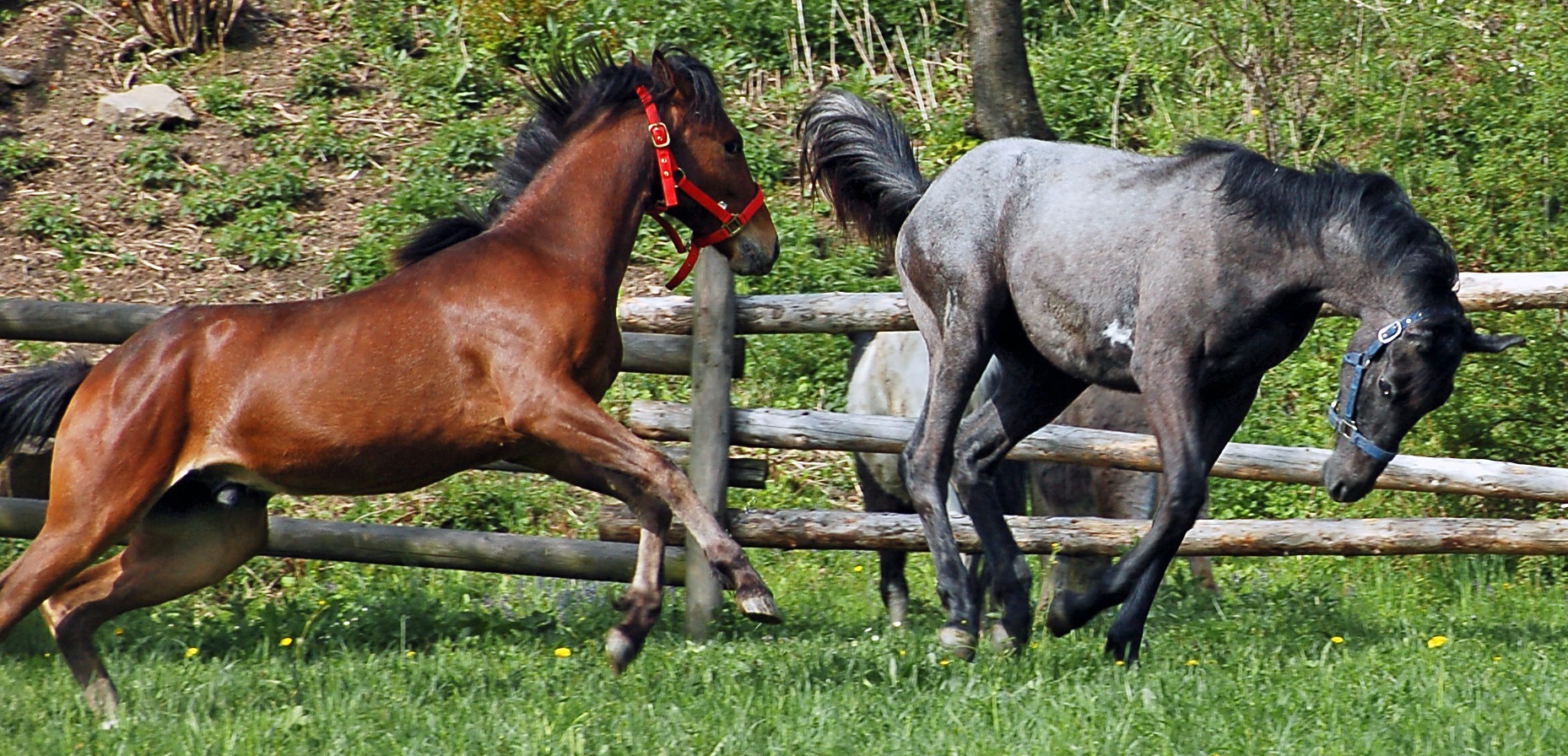 “This course is incredibly valuable for anyone who spends time around horses. The resources shared and personalized activities will help horse owners, boarders, barn managers, and casual riders recognize ways to be safer when enjoying equine activities. It’s easy to complete the activities and assignments at your own pace and the information and resources are made to be very relevant. Highly recommended!”
“This course is incredibly valuable for anyone who spends time around horses. The resources shared and personalized activities will help horse owners, boarders, barn managers, and casual riders recognize ways to be safer when enjoying equine activities. It’s easy to complete the activities and assignments at your own pace and the information and resources are made to be very relevant. Highly recommended!”
Brandi Phillips, Animal Technical Rescue Branch Director – University of Florida Veterinary Emergency Treatment Service (Gainesville, FL, USA)
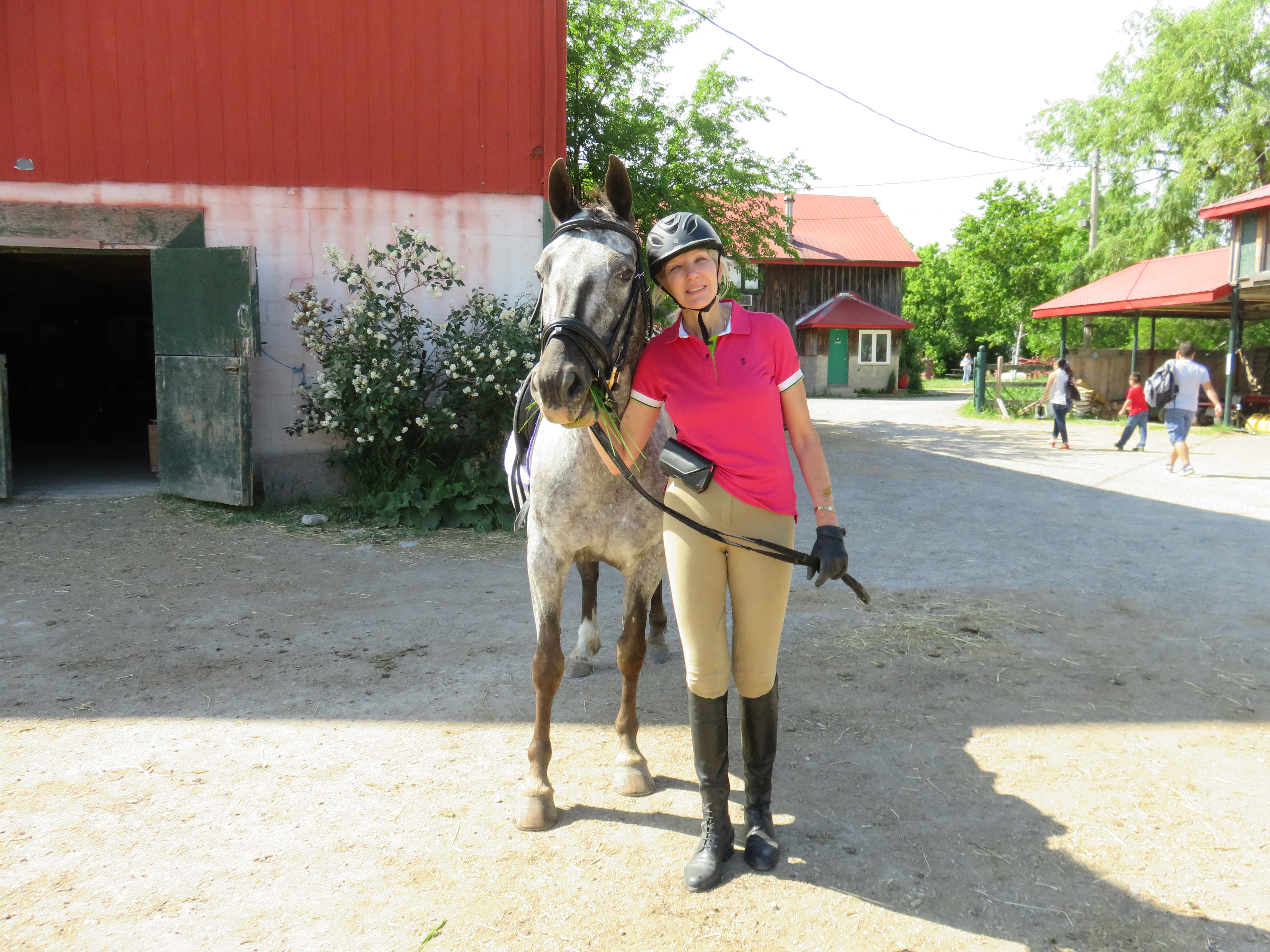
Olivia Cole and “Storm”
“The course has provided me with many tools to keep me safe when riding and working with my horse. The course instructor and guest speaker were available to answer questions, and the course website was easy to use! The required reading material and the additional resources were concise and clear making the learning process fun! The course definitely exceeded my expectation! I would like to take more online courses with the Equine Guelph in the near future! Thank you!”
Olivia Kole, Horse Owner and Rider (“The Ranch – Oakville, ON)
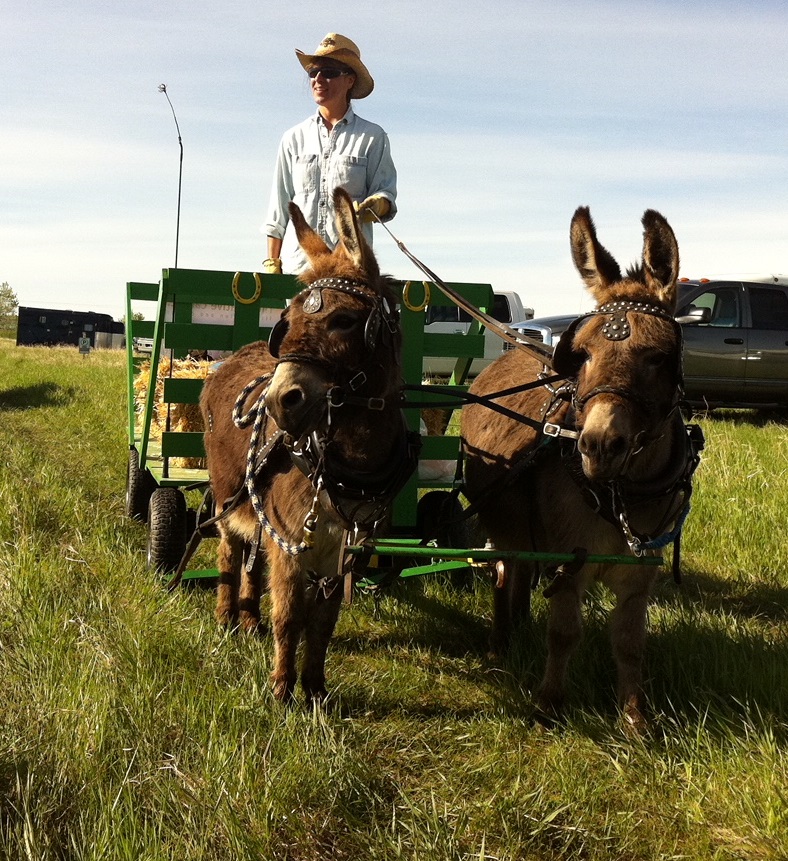 “The Horse Behaviour and Safety Course is a must for both experienced and non-experienced horse lovers, owners and riders.”
“The Horse Behaviour and Safety Course is a must for both experienced and non-experienced horse lovers, owners and riders.”
Donna Elkow-Nash, Owner
 “This online course is well presented and easy to follow with illustration portions and short quizzes making it a great way to remember the material. The instructor provides individual feedback and encourages group discussions to maintain engagement. I recommend this course for everyone involved with horses to gain a better understanding of their behaviour and how we can make safety our top priority.”
“This online course is well presented and easy to follow with illustration portions and short quizzes making it a great way to remember the material. The instructor provides individual feedback and encourages group discussions to maintain engagement. I recommend this course for everyone involved with horses to gain a better understanding of their behaviour and how we can make safety our top priority.”
Pat Jacobson – Rider / Driver (Regina, SK)
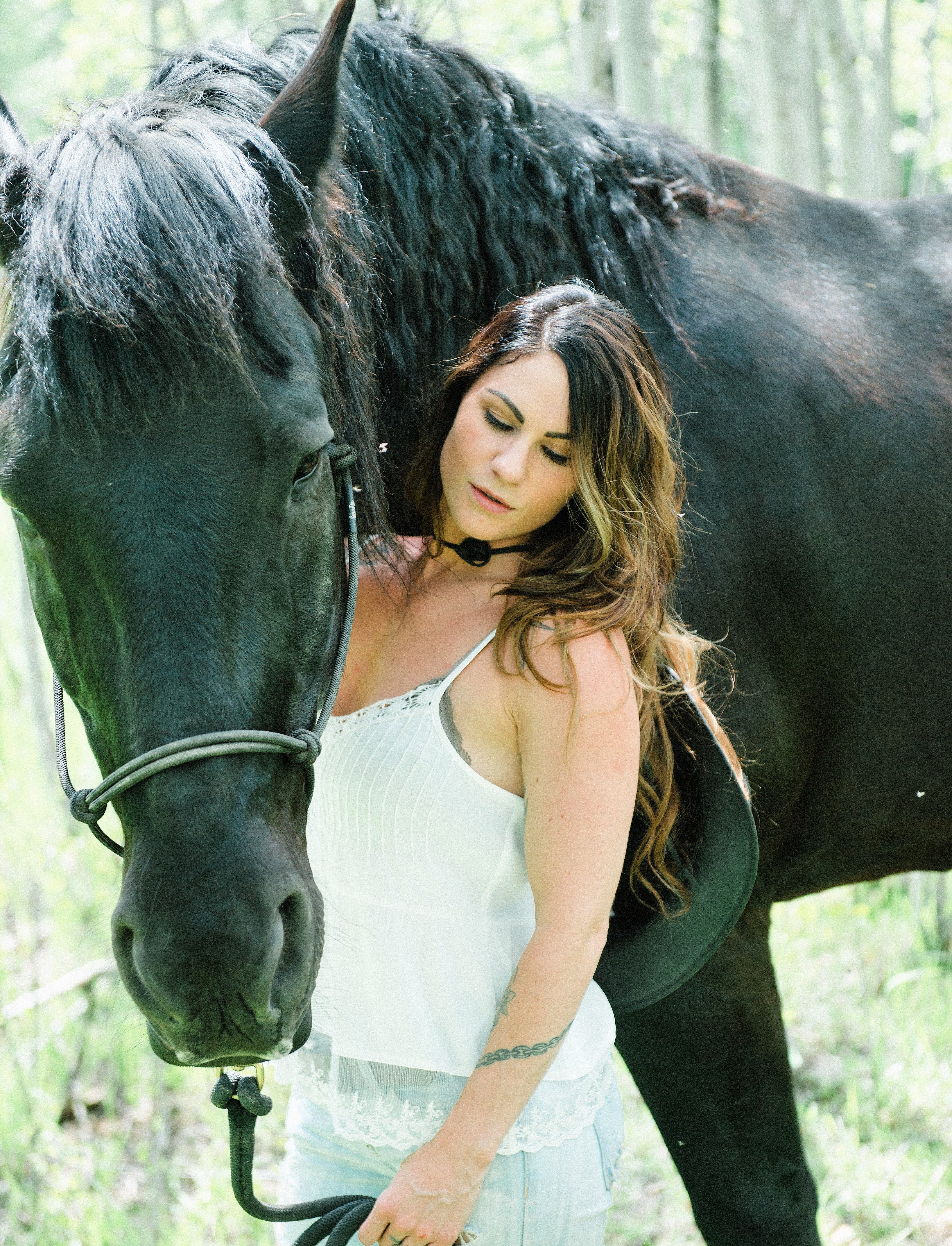 “I loved this course so much I’m going to register for the Diploma in Equine Studies Course! Thank you Equine Guelph for making it easy to learn while still being a wife, mother, business owner, etc!”
“I loved this course so much I’m going to register for the Diploma in Equine Studies Course! Thank you Equine Guelph for making it easy to learn while still being a wife, mother, business owner, etc!”
Shelby Kennedy
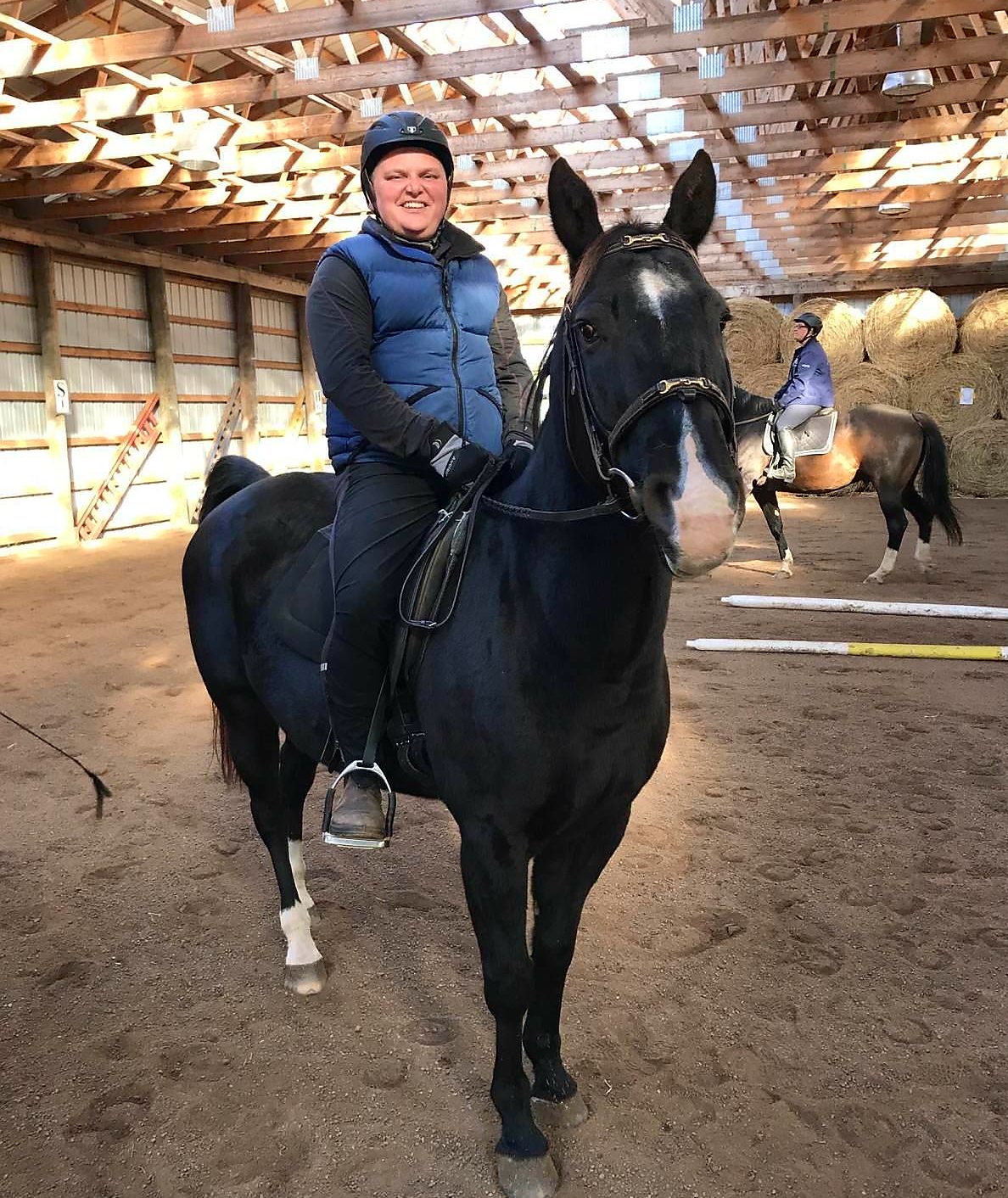 “As a novice horse rider, I have gained some great insight into horse behaviors I see on my weekly rides! I now have a greater understanding of my horse and how to be a safer handler.”
“As a novice horse rider, I have gained some great insight into horse behaviors I see on my weekly rides! I now have a greater understanding of my horse and how to be a safer handler.”
Kelsey Leaver, Recreational Rider
 “I’m new to the world of horses and horseback riding. This course has been an invaluable resource for me. There’s so much to learn before going near or touching a horse. It has given me a lot of information to horse and barn safety. I’m feeling more confident when being with and handling horses. The course offers a ton of great tips, everything from helmet safety to how to lead and handle horses. This should be a compulsory course anyone involved in the equine world.”
“I’m new to the world of horses and horseback riding. This course has been an invaluable resource for me. There’s so much to learn before going near or touching a horse. It has given me a lot of information to horse and barn safety. I’m feeling more confident when being with and handling horses. The course offers a ton of great tips, everything from helmet safety to how to lead and handle horses. This should be a compulsory course anyone involved in the equine world.”
George Leung, Beginner Rider (Pickering, ON)
 “As a person, looking to purchase our first horse, I can attest: nothing could prepare me better than series of on-line courses offered by the University of Guelph. The knowledge shared by instructors and on-line discussions with fellow students make me feel ready to take on a challenge and become a responsible owner of an equine.”
“As a person, looking to purchase our first horse, I can attest: nothing could prepare me better than series of on-line courses offered by the University of Guelph. The knowledge shared by instructors and on-line discussions with fellow students make me feel ready to take on a challenge and become a responsible owner of an equine.”
Nadya Scharfenberg, Prospective Horse Owner (Holstein, ON)
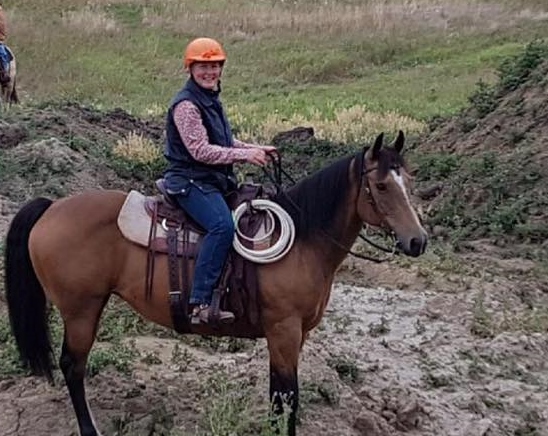 “This was an excellent summary of basic safety, handling and care of horses and the people involved with them. Great resources provided, well written, well cited.”
“This was an excellent summary of basic safety, handling and care of horses and the people involved with them. Great resources provided, well written, well cited.”
Becky Taylor, Owner and Coach Instructor, Olds College (Olds, Alberta)
Stop Think Act Program
Farm Safe, Not Lucky
Equine Guelph’s safety program partner, Workplace Safety and Prevention Services (WSPS) is helping farmers, agriculture workers and farm families keep safe through a program called Stop Think Act (STA).
Stop Think Act is a simple, yet powerful behaviour-based safety program that encourages people to consider the task at hand and ask themselves how their own actions could contribute to a safe and productive outcome.
We encourage you to visit WSPS’s website and view the program’s introduction video and Stop Think Act Topic-Specific Videos and Resources. Many of these resources have been incorporated into our course.
For more resources and youth activities visit: https://thehorseportal.ca/stop-think-act/
So, before you begin a task, always remember to:
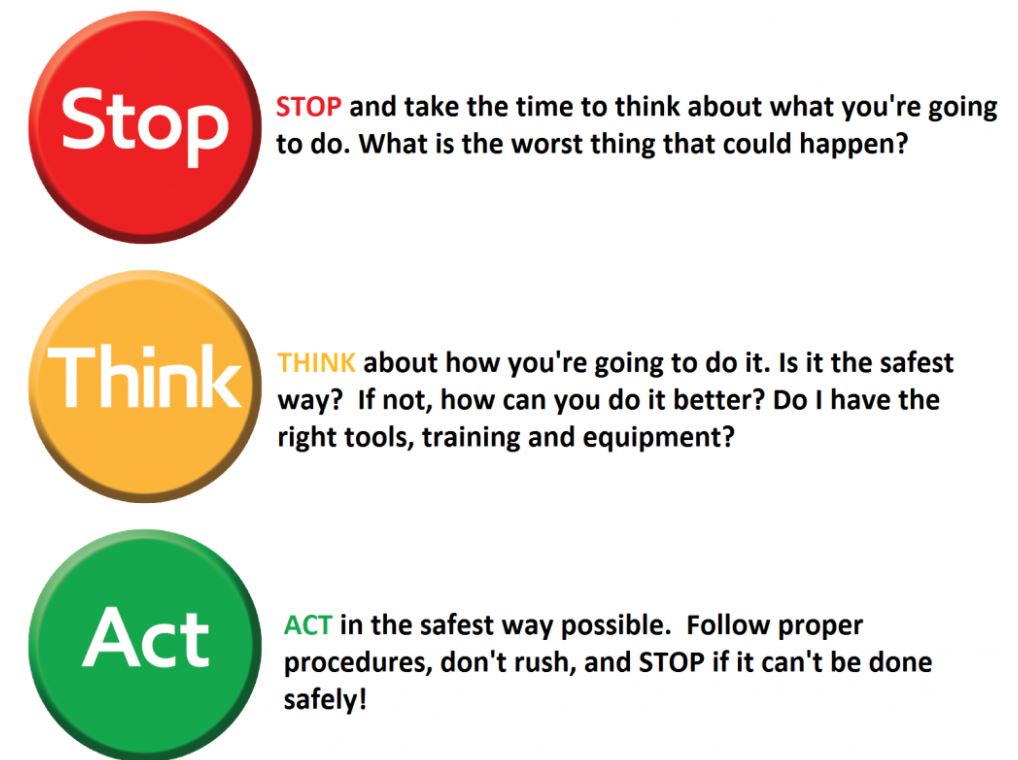
Dr. Rebecca (Gimenez) Husted 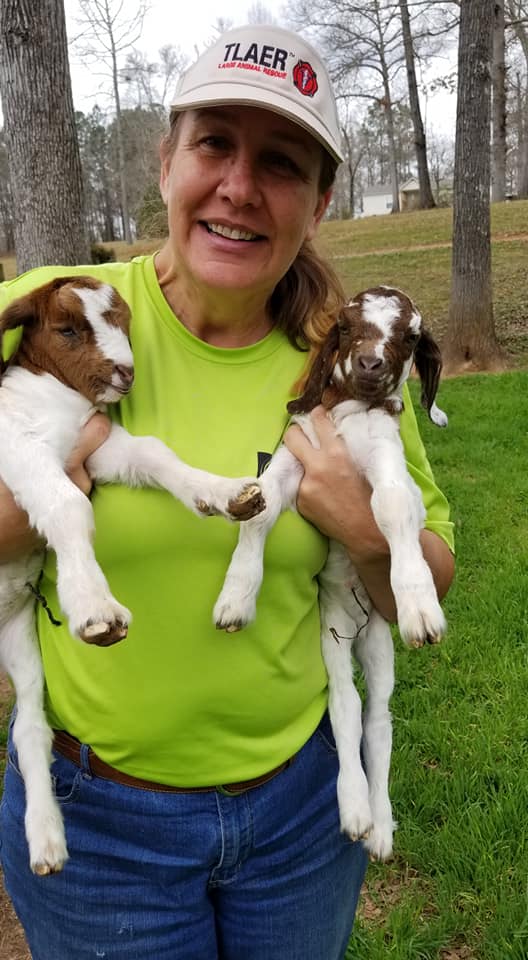
A volunteer firefighter in Gray, GA, Rebecca is doing R&D work with University of Edinburgh (UK), EKU (KY) and several veterinary schools. An internationally sought speaker and instructor, she edited the only textbook available to the fire service and veterinarians on technical rescue of large animals. Rebecca holds a BS (Wofford College) and PhD (Clemson University). Current scientific research interests include a national survey of trailer accident causality and a study of physiological responses to Technical Rescue procedures and equipment in large animals. A past Logistics Officer for FEMA’s Veterinary Medical Assistance Team (VMAT -2), decorated combat veteran and a Major in the US Army Reserves, she is active in various organizations related to disaster preparedness. She gives training worldwide in Technical Large Animal Emergency Rescue techniques, using privately owned animals that she trains for hands-on demonstrations to perform without sedation. She has published numerous critiques, techniques and journal articles on the subject of technical large animal emergency rescue. For more information please visit the TLAER website.
Eligible Partner Discounts:
Course discounts available to members of the following equine organizations:
- Canadian Therapeutic Riding Association
- Equine Connection
- Horse Racing Alberta
- Ontario Racing
- Standardbred Canada
- Saddle Up Safely (US)
Course Instructor
Our Partners
Equine Guelph thanks our safety partners for supporting this course:



